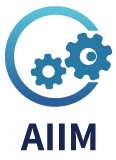Topics
· Theoretical aspects of membrane computing
Various variants of computing models: cell-, tissue- and neural-like P systems.
Computing power of membrane computing models.
Computing efficiency of membrane computing models.
· Applications of membrane computing
Robot controller design.
Modeling using P systems for biosystems, biomedicine, ecological systems, etc.
Membrane-inspired optimisation algorithms for various problems.
Fault diagnosis of various systems, such as robots, power systems, etc.
Information and communication technologies.
Information security and cryptography.
Other applications.
· Implementation of membrane computing models
Software implementation.
Hardware implementation.
Biological implementation.
Biochip implementation.
Other implementation.
· Related topics
Bio-Inspired Optimisation Techniques, such as optimisation algorithms inspired by cells or DNA computing.
Other topics related to membrane computing or dealing with cellular computing, DNA computing, reaction systems, etc.



